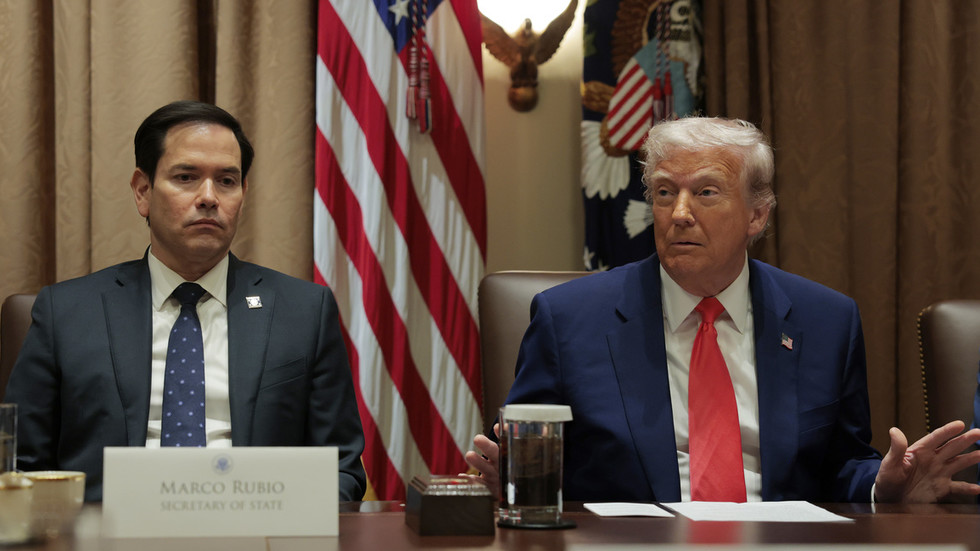Millions of Americans live outside of their home country, and their votes could impact what is likely to be razor-thin margins in swing states.
US presidential candidates Kamala Harris and Donald Trump are polling within the margin of error, yet despite the expectation of razor-thin margins, the potential impact of one group of US voters remains a mystery.
An estimated 2.8 million Americans, excluding military members, are eligible to cast their votes from overseas, according to the US defence department.
Depending on what states they hail from, these voters could impact the outcome of an election. Some organisations also estimate the number of US voters abroad to be even higher.
In 2020, there were more than 224,000 ballots from citizens abroad, a US defence department spokesperson told Euronews.
That represented a 7.8% turnout among the US voters overseas, much lower than the 66% turnout among the general population in the last presidential election.
‘Good level of motivation’ among US voters abroad
James McCann, a political science professor at Purdue University in Indiana, has studied US voters living in Canada and Mexico and says they are still motivated and interested in American politics.
“There is a pretty good level of motivation, a reservoir of interest, even if you have lived outside of the US for 10, 20, 30 years,” McCann told Euronews.
“When asked how closely do you follow politics in the US, do you care about the elections? I'm sure you'll see many voters abroad say they're interested," he said.
In general, US citizens abroad tend to be well-resourced too, meaning they have the capacity to find a way to vote, but one issue is that political parties do not invest as much abroad as they do elsewhere, and only the Democratic party has an arm of the party overseas.
“The impediment to organising abroad is that it's just, you know, it takes far more of an organisational commitment,” McCann said.
One of those interested voters is Sophia, a 30-year-old project manager from Berlin who told Euronews that she felt she could make a difference in her home state of Florida.
"I'm not super jazzed about Kamala Harris, but I think that she will definitely be better than Trump, and I think it's also a good thing that she’s one of the few candidates we see that's not in their 70s,” Sophia said, adding that she’s particularly concerned about protecting access to abortion.
Florida has a citizen-led initiative on its ballot to prohibit the government from restricting abortion access, so Sophia made sure she was registered there to weigh in.
The issue of abortion is a question of "life and death," she said.
"So I guess when I'm thinking about that and how I vote, then it is a lot more about [being] worried about all the people in my home state who have to travel far, far away to get health care,” she said.
‘No master list’ of US overseas voters
Sharon Manitta, the global press secretary for Democrats Abroad, based in the United Kingdom, said there is difficulty in getting to voters overseas because there “is no master list of who lives outside the US”.
“We're always doing everything we can to find Americans,” including outreach on social media, press, and even setting up at farmer’s markets, she added.
One of the “biggest hurdles” though is that people sometimes don’t know they have the right to vote or how to register, which is why they’ve tried to make information about how to do so more accessible even though each state has its own rules.
The candidates have also been courting US voters abroad. Democratic candidate Harris said in a letter last month that she recognised the “unique challenges” of Americans overseas, including access to consular and financial services.
In a video message to voters overseas, Republican candidate Trump said last month he would end double taxation on US voters abroad. Republicans do not have a party arm overseas, but there is a political action organisation.
How could the overseas vote impact the election abroad?
With Harris and Trump polling so closely in swing states, the expectation is that the difference between them will be slim.
“Even if turnout is somewhat low from abroad, you know, maybe 10, 12 or 15%, if it really exceeds earlier patterns, even though that's rather low compared to the US mainland depending on [where] those votes are applied, even a few thousand could really make a big difference,” McCann said.
“It is conceivable that, you know, this group, like so many other really small sections of the electorate could make a difference,” he added.

 5 months ago
44
5 months ago
44






 We deliver critical software at unparalleled value and speed to help your business thrive
We deliver critical software at unparalleled value and speed to help your business thrive






 English (US) ·
English (US) ·